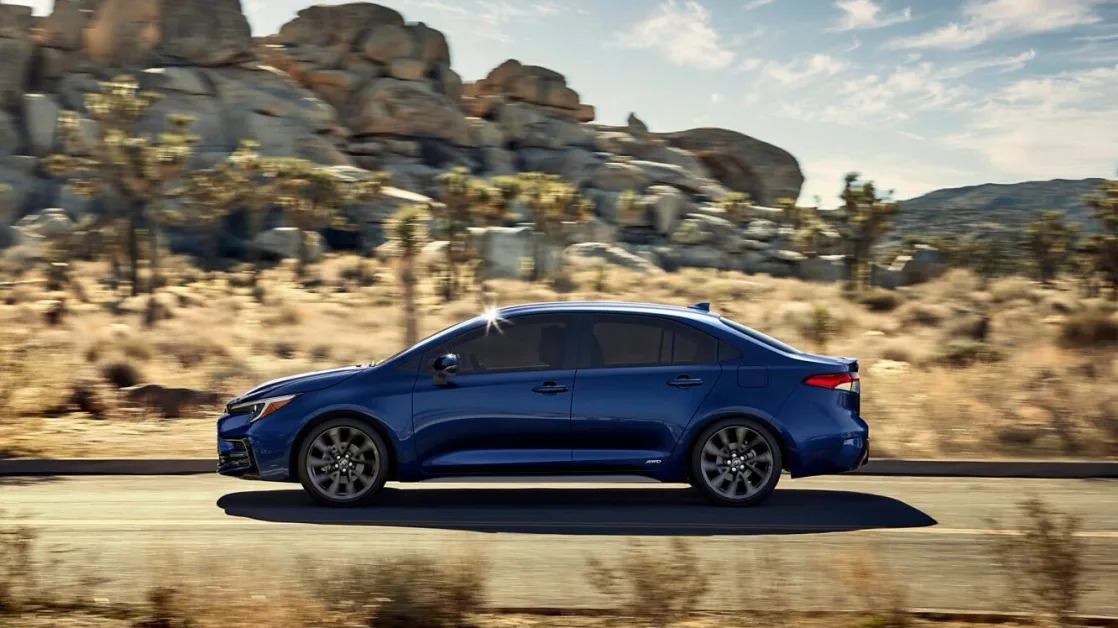
Toyota 's stock is skyrocketing as investors look to cash in on the company's reported efforts to increase profitability.
US-listed shares surged 9% as of Thursday afternoon to trade at an intraday high of $197.44. The company's Tokyo-listed shares, meanwhile, rose 6% for an 11% gain over two days, its biggest two-day advance since August.
The stock's rise comes after the Nikkei newspaper reported the company aims to double its return on equity target to 20%, up from market forecasts of 11% for the year ending in March. The report cites a company executive who asked not to be named.
Toyota's surge brings the company's gains to just over 8% this year, underperforming the S&P 500 's 26% year-to-date rally.
The stock's latest rise helps pare recent losses after it had skyrocketed as much as 40% on a year-to-date basis in March. It's largely cratered since amid little demand growth compared to other auto giants like Honda , Nissan, and Mazda , despite being the world's biggest automaker after Germany's Volkswagen AG.
The Japanese carmaker's global sales plateaued in November amid slowing demand and a pause in production at two of its facilities.
The automaker's production process has also faced high exposure to tariff risks, with 19% exposure to Canada and 8% to Mexico, Citi analysts said in a note last month. President-elect Donald Trump has floated tariffs as high as 25% on both countries, though it remains uncertain if he will fully follow through on the policies or if his proposals are merely negotiation tactics .
Other carmakers have similarly surged in recent weeks, with reports of a merger sending Honda and Nissan's stocks skyrocketing.
If finalized, the merger would make for the world's third largest automaker by volume, helping the companies better compete with Toyota. Honda and Nissan would have a combined light vehicle volume of 7.4 million units, compared with Toyota's 10.3 million, according to a recent Morgan Stanley note.
The merger would also mark the largest in the Japanese auto industry's history and could be the start of a trend as automakers face an increasingly competitive landscape, the analysts said.
"Given the industry dynamic, there could be more consolidation to come, in our view. Legacy auto companies that don't find new partners must face the prospect of being smaller companies with higher capex/R&D spend per unit," they wrote.
Read the original article on Business Insider


